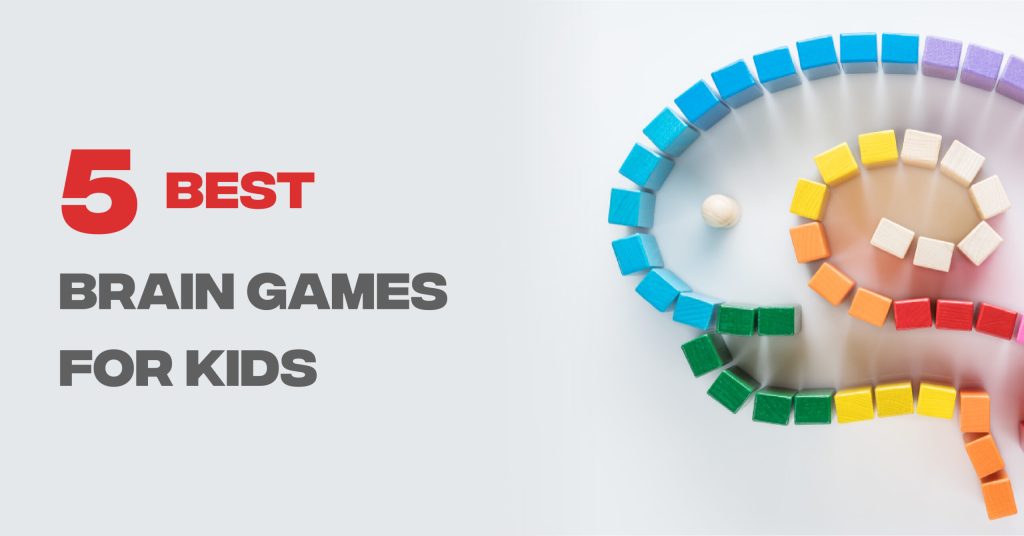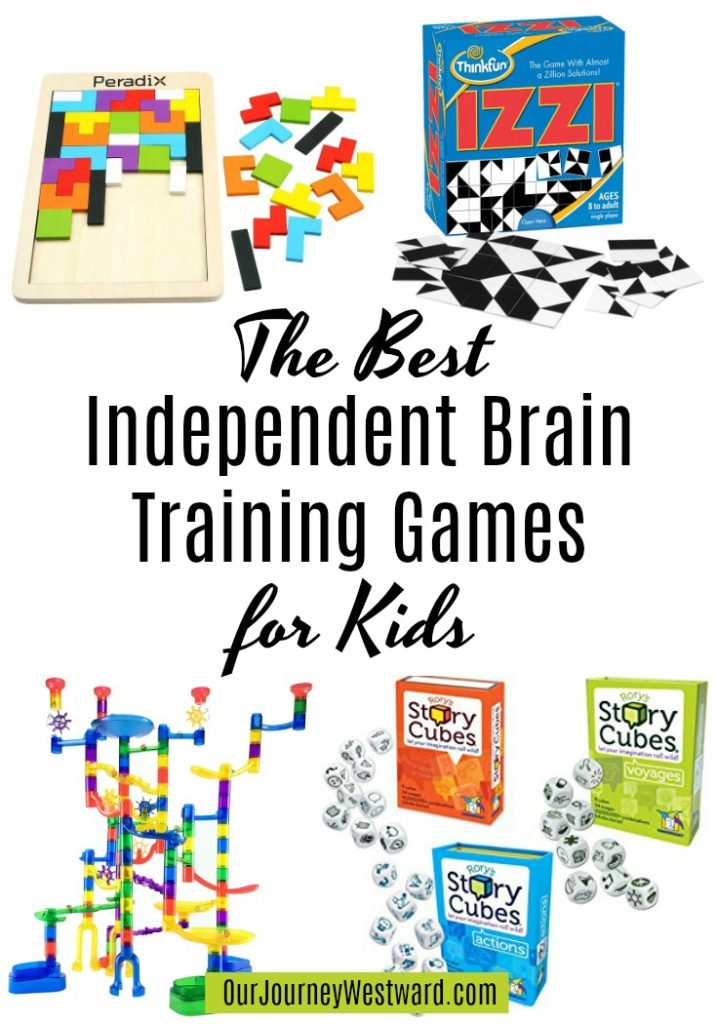In this article, we will be discussing some useful tips on how to select brain games that are suitable for your child. You will learn about the importance of brain games in enhancing cognitive skills, as well as what to consider when choosing the right game for your little one. We will also provide some guidance on how to find reliable information and resources, such as blog posts, to assist you in making the best decision. By the end of this article, you will be equipped with the knowledge to confidently choose brain games that will benefit your child’s development.
Tips for selecting brain games for your child
Choosing the right brain games for your child can play a crucial role in their cognitive development. Brain games are designed to enhance various cognitive abilities, such as memory, reasoning, attention, and problem-solving skills. These games not only provide entertainment but also have the potential to promote learning and critical thinking. With so many brain games available in the market, it can be overwhelming to select the most suitable ones for your child. This article aims to provide you with tips and guidelines to help you make informed decisions when it comes to selecting brain games for your child’s optimal cognitive growth.
Improving Cognitive Abilities
One of the primary reasons why brain games are important for children is due to their potential to improve cognitive abilities. By engaging in brain games regularly, children can enhance their memory, attention, reasoning, and problem-solving skills. These mental skills are crucial for academic performance and intellectual growth. Brain games provide a challenging environment that stimulates the brain and helps it develop and strengthen these cognitive abilities.
Enhancing Learning and Memory
Brain games are an excellent tool to enhance learning and memory. Through various strategies and exercises designed to improve memory, such as memorizing patterns or sequences, children can develop their memory capacity and retention skills. By engaging in brain games that require them to recall information or remember specific details, children can sharpen their memory skills, which can be incredibly beneficial in their academic pursuits.

Promoting Problem-solving and Critical Thinking
Brain games are also known to promote problem-solving and critical thinking skills. These games often present children with puzzles, riddles, or complex tasks that require them to think critically and come up with innovative solutions. By engaging in brain games that challenge them to think outside the box, children develop their problem-solving abilities and learn to approach problems from different perspectives. This nurtures their analytical thinking and fosters their creativity, which are skills that will be instrumental in their future endeavors.
When selecting brain games for your child, there are several factors that you should consider to ensure the most suitable options:
Age Appropriateness
First and foremost, it is crucial to consider the age appropriateness of the brain games you choose for your child. Different age groups have varying cognitive capacities and developmental needs. Therefore, it is essential to select brain games that are specifically designed for your child’s age range. Age-appropriate brain games provide the right level of difficulty and complexity, ensuring that your child can engage with the game effectively and derive maximum benefits from it.

Skill Level and Progression
Consider your child’s current skill level and look for brain games that offer a suitable level of challenge. It is important to select games that provide an appropriate progression of difficulty, allowing your child to gradually advance and improve their cognitive abilities. Games that offer different levels of difficulty or adaptive difficulty settings are ideal, as they can cater to your child’s individual skill level and provide an engaging experience.
Variety of Cognitive Skills Targeted
Look for brain games that target a variety of cognitive skills. A well-rounded cognitive development requires the stimulation of various mental faculties. Therefore, choose brain games that offer a range of exercises and activities focused on memory, attention, reasoning, and problem-solving skills. By offering a diverse set of cognitive challenges, these games can help your child develop a wide range of mental capabilities.

Engaging and Enjoyable Gameplay
Select brain games that provide engaging and enjoyable gameplay. For children to benefit from brain games, they need to be motivated to play them regularly. Look for games that have appealing graphics, interactive features, and a user-friendly interface. Additionally, consider your child’s interests and preferences to ensure that the brain games align with their personal taste. Finding brain games that strike a balance between educational value and entertainment can make the learning experience more enjoyable for your child.
Memory Games
Memory games focus on enhancing a child’s memory capacity and retention skills. These games often involve recalling information, matching images or patterns, or remembering sequences. Memory games can be effective in improving your child’s memory abilities and can be a great addition to their brain game collection.

Logic and Reasoning Games
Logic and reasoning games aim to develop a child’s analytical and critical thinking capabilities. These games typically involve solving puzzles, riddles, or problems by applying logical reasoning and deduction. Engaging in logic and reasoning games can promote your child’s problem-solving skills and encourage them to think logically and critically.
Attention and Focus Games
Attention and focus games are designed to improve a child’s concentration and attention span. These games often require the player to focus on specific stimuli or tasks while ignoring distractions. By engaging in attention and focus games, children can strengthen their ability to concentrate, which can have a positive impact on their academic performance and overall cognitive development.

Visual-Spatial Skills Games
Visual-spatial skills games focus on developing a child’s spatial awareness, visualization abilities, and hand-eye coordination. These games often involve manipulating objects, recognizing patterns, or navigating through virtual environments. Engaging in visual-spatial skills games can enhance your child’s spatial reasoning abilities and improve their overall coordination and perception.
When selecting brain games for your child, it is advisable to consult with experts and professionals who can provide valuable insights and guidance:
Talking to Teachers and Educational Consultants
Teachers and educational consultants possess extensive knowledge about children’s cognitive development and learning needs. They can recommend suitable brain games based on your child’s specific strengths and weaknesses. Consider discussing your child’s preferences and goals with their teachers or educational consultants to receive personalized recommendations.
Seeking Advice from Pediatricians or Child Psychologists
Pediatricians and child psychologists can also offer valuable advice when it comes to selecting brain games for your child. They can assess your child’s cognitive abilities and provide recommendations based on their professional expertise. Conversations with these experts can help you gain a deeper understanding of your child’s cognitive development and identify brain games that will be most beneficial for them.
Additionally, researching and reading reviews can provide you with further insights and help you make informed decisions:
Exploring Online Resources and Reviews
There are several online resources, websites, and forums dedicated to reviewing and recommending brain games for children. Take the time to explore these resources and read reviews from other parents and experts. These reviews can give you an idea of the effectiveness of the brain games and whether they align with your child’s needs.
Reading Personal Experiences and Testimonials
Seek out personal experiences and testimonials from parents who have previously used brain games with their children. Hearing about their firsthand experiences can provide valuable insights into the benefits and effectiveness of specific brain games. Look for testimonials or join parenting communities where you can connect with other parents to exchange recommendations and insights.
It is important to consider your child’s individual learning style when selecting brain games:
Identifying Visual, Auditory, or Kinesthetic Learners
Children have different learning styles, and understanding your child’s preferred learning style can help you choose brain games that cater to their needs. Some children are visual learners, while others may learn better through auditory or kinesthetic approaches. Consider your child’s learning style when selecting brain games to ensure that they engage with and benefit from the games effectively.
Balancing screen time and physical activity is essential for your child’s overall well-being:
Setting Time Limits for Brain Game Sessions
While brain games can be highly beneficial, it is important to set time limits for your child’s screen time. Excessive screen time can have adverse effects on a child’s physical and mental health. Set boundaries and allocate specific time slots for brain game sessions, ensuring that your child has sufficient time for other activities and physical exercise.
Encouraging Active Play and Exercise
In addition to brain games, it is crucial for children to engage in physical activity and active play. Encourage your child to participate in outdoor activities, sports, or any form of exercise that they enjoy. Physical activity not only contributes to their physical health but also supports cognitive development by improving focus, attention, and overall brain function.
Monitoring and evaluating your child’s progress is crucial when it comes to brain game usage:
Tracking Improvement in Cognitive Abilities
Regularly monitor and track your child’s improvement in cognitive abilities. Keep a record of their performance in specific brain games and observe any improvements or areas that may need further attention. This will help you understand the effectiveness of the brain games and make adjustments if necessary.
Observing Development of Other Skills
In addition to cognitive abilities, observe the development of other skills in your child. Brain games can have positive effects on various aspects of your child’s growth, including social skills, problem-solving abilities, and creativity. Take note of any positive changes you observe in these areas as you continue incorporating brain games into their routine.
Fostering parent-child engagement is crucial when it comes to brain games:
Playing Brain Games Together
Take an active role in your child’s brain game sessions by playing together. This not only strengthens the parent-child bond but also provides an opportunity for interactive learning and enhancing problem-solving skills. Engaging in brain games together can create a fun and supportive environment, encouraging your child’s participation and learning.
Discussing Game Strategies and Challenges
Encourage your child to discuss their game strategies and challenges with you. Engage in conversations about the brain games they play, help them analyze problems, and brainstorm potential solutions. By fostering open discussions, you can further enhance their critical thinking skills and help them develop effective problem-solving strategies.
In conclusion, brain games play a crucial role in a child’s cognitive development. By selecting the right brain games for your child, you can enhance their cognitive abilities, promote problem-solving and critical thinking skills, and improve their overall learning and memory capabilities. Consider age appropriateness, skill level, variety of cognitive skills targeted, and engaging gameplay when selecting brain games. Seek advice from experts and professionals, research and read reviews, and consider your child’s individual learning style. It is important to balance screen time with physical activity, monitor and evaluate progress, and foster parent-child engagement throughout the brain game experiences. By following these tips, you can ensure optimal cognitive growth and provide your child with enjoyable and beneficial brain game experiences.
